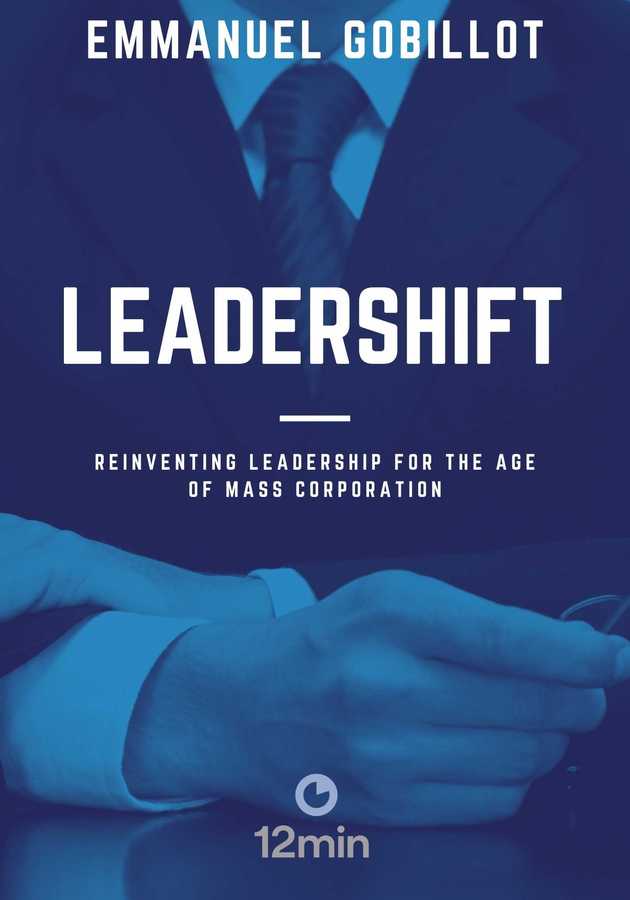We see the transforming power of technology everywhere we look. Yet, we often do not understand its fundamental nature and essence. The lack of understanding of technology creates confusion about how strongly we should embrace it. In ‘’What Technology Wants,’’ Kevin Kelly tries to clarify this confusion by taking an unusual approach and comparing technology with a living organism. What do people and technology have in common? Is it possible to live without it? And does technology make our lives better? Get ready to find out Kelly’s answers to these questions.
Technology and technium
The exploration of technology begins by analyzing the origins and usage of the term itself. The word technology is a compound word with a Greek origin. The word “techne” in ancient Greek meant art, skill, and craft. While this word initially had a positive meaning and was associated with the ability to outwit circumstances, its connotation has changed over time. Famous Greek philosopher Plato and his followers used the word “techne” when talking about manual craftwork. As Plato did not value practical knowledge, the meaning of the word was negative for him. Furthermore, it was Aristotle who first mentioned the word “techne” together with “logos” in his capital work ‘’Rhetoric.’’ However, it is unclear what he referred to when he used this word. The term in this form eventually disappeared, even though technology did not. As Kelly notes: ‘’The Greeks invented iron welding, the bellows, the lathe, and the key. Their students the Romans invented the vault, the aqueduct, blown glass, cement, sewers, and watermills.‘’
For centuries, people used the words “craft” and “art” when referring to creation. It was not until 1802 when the term “techne” was revived in the book ‘’Guide to Technology’’ by Johann Beckmann, an economics professor in Germany. He used the word technology when writing about architecture, chemistry, metalwork and manufacturing. ‘’He was among the first to recognize that our creations were not just a collection of random inventions and good ideas,’’ adds Kelly.
The term technology refers to various inventions. We use it to talk about biotechnology, digital technology, even the technology of the Stone Age. The author notes that we lack the term that denotes the system of interconnected technologies, technology as a whole. Therefore, he introduces the word “technium.” He says: ‘’The technium extends beyond shiny hardware to include culture, art, social institutions, and intellectual creations of all types. It includes intangibles like software, law, and philosophical concepts.‘’ In the book, he uses the word technology when talking about specific areas, and the word technium for the system of technologies or, ‘’the grand totality of machines, methods, and engineering processes.’’
What technology wants
Do you know what happens to your email message once you compose it and send it to someone? The network cuts your message into pieces (bites) sent along pathways to the final destination, where they reassemble to make the original message. Kelly sees this process as ‘’marvelously organic - very much like the way messages in an anthill are sent.’’ According to him, large technology systems often behave like primitive organisms. Take computer programs as an example: they duplicate themselves just as cells do. And, just like with organisms in the evolution system, some lines of code evolve until they enable the program to perform perfectly, and those that do not work well are erased.
Numerous technologies have progressed over time: they do more using less material, much the same as computer software does. With the disembodiment of technologies, their core became ideas and information. Life itself is the same. As the author says, its essence ‘’does not reside in material forms like DNA, tissue, or flesh, but in the intangible organization of the energy and information contained in those material forms.’’
Similar to humans, technium is autonomous. This idea might be controversial since technium cannot exist independently from people. However, if you think a bit, not even people are fully independent. According to Kelly, an entity is autonomous if it has these traits: self-repair, self-defense, self-maintenance (securing energy, disposing of waste), self-control of goals and self-improvement. There isn’t a system in the technium that has all these traits, but there are plenty of examples that display some of them. For example, airplane drones can self-steer and stay aloft for hours. They are not self-repairing, however. Communication networks, on the other hand, can repair themselves. But they don’t reproduce themselves. Computer viruses are self-reproducing but not self-improving, and so on.
The technium does what we direct it to do. Also, it has its own wants. When Kelly uses the word “want” to talk about technium, he does not consider it conscious. In this context, the “want” implies tendencies or urges. For example: if your phone battery is low, you can clearly ‘’feel its want’’ for charging.
The inevitable in technology
What inventions are inevitable? Was the picture phone one of them? It appeared on the market at the beginning of the 21st century, even though it was invented in the 1960s. Kelly remembers seeing one at the New York World’s Fair in 1964. The picture phone which he saw had a small screen attached to it and was fully functional. Why did this invention wait so long to be widely adopted?
We can better understand the inevitable in technological advancements if we look at the factors shaping human development. First, our genes determine our characteristics. The second factor is the environment and upbringing. ‘’Every day science uncovers more evidence of the ways in which our family, peers, and cultural background shape our being,’’ says Kelly. Environmental factors also influence genes, so these two factors are interconnected. The last thing that shapes our character, and life in general, is free will. ‘’You may inhabit a body and brain that wants to be lazy or sloppy or imaginative, but you choose to what degree those qualities progress (even if you aren’t inherently decisive),’’ the author notes.
It is the same with technium - its inherent nature (preceding discoveries) determines its further development. There is also the factor of ‘’the society’s collective free will, our choices.’’ If we now look at the phone invention, we can say it was inevitable: previous technological discoveries led to it. However, the iPhone was not: the same as human adolescence is unavoidable, but delinquency is not. It’s a matter of genetics and environment and, on the other hand, our free will and choices. This example also illustrates that our choices can only influence the microscale of technium. Kelly notes, ‘’At a macro-scale, the technium is following its inevitable progression.’’ To clarify, we cannot approve or disapprove of the invention of the phone. However, we can choose how we will use it (and our usage will shape the further development in the phone industry).
Learning from the Amish
In the contemporary world where the majority is addicted to technology, the Amish offer an admiring alternative. The technologies they use most are the ones they can build or repair by themselves - they are generally a self-reliant community. Their reluctance to accept technology lies in their motivation to strengthen the community. For example, upon the invention of cars, the Amish noticed that drivers would often go sightseeing to other towns in their free time rather than visiting their family members. A similar motivation lies behind their old practice of living without electricity. With no electricity, they have remained more tied to each other. However, as technology has become an inseparable part of human life, the Amish have had to find a way to live with it: they use it, but on their own terms. The Amish make a distinction between using something and owning it. That means they will not purchase cars to travel from one place to another, but they will call a taxi. Similarly, they use high-technology at work but do not own it at home.
Their limited use of technology enables them to differentiate the necessary from unnecessary. As one Amish man told Kelly: “What is the difference if I stand in my phone booth with a wireless phone or stand outside with a cell phone? There’s no difference.’’
Their type of lifestyle might seem to narrow down the choices people have. However, the Amish have come up with the practice called ‘’rumspringa,’’ which allows young people to abandon the community rules and embrace technology more: they can move wherever they want, party, buy cars, use cell phones, and so on. After a few years of living outside the community, they can decide whether they will live the Amish way or not. Interestingly, very few of them choose the latter. The main reason is that the Amish lifestyle offers fewer distractions and more satisfaction. Without modern technology, they have more time to socialize, enjoy outside activities, or read books.
Does technology make us better?
Technology improves our lives, but does it make us better? Kelly believes it does since it provides us with chances. ‘’A chance to excel at the unique mixture of talents he or she was born with, a chance to encounter new ideas and new minds, a chance to be different from his or her parents, a chance to create something his or her own.’’ When using technology, we can optimize our talents, find out who we are and who we might become. Without the technology of oil paint, there would not be painters, for example. The technology of making films created cinematic talents. Just think how many geniuses died before the needed technologies were available for them to express themselves. In this sense, developing technology is our moral obligation.
There is still a matter of choice, however, to decide how much technology we actually need in our lives. The author offers his criterion for making this decision, ‘’As a practical matter I’ve learned to seek the minimum amount of technology for myself that will create the maximum amount of choices for myself and others.’’
It is unfair to talk about the technium and creation without mentioning God, the greatest creator of all. ‘’If you believe humans are made in the image of God, the autocreator, then we have done well, because we have just birthed our own creation: the technium,’’ writes Kelly. Therefore, the technology we make is not a consequence of human ingenuity but rather a confirmation of the divine.
We can say that technium expands life and its fundamental goodness. It produces choices, including the choice for good. According to Kelly, that is what technology wants: to generate more options, more opportunities, more diversity, more thought, more problems. ‘’Those add up to more good, an infinite game worth playing,’’ he says.
Final Notes
Our relationship with technium is symbiotic - it cannot exist outside us, just as we cannot live without it. As soon as we accept this fact, we will be able to make the most of it.
This book would be a more valuable read if the author did not insist on comparing technium with nature. His theory lacks a solid base and is therefore confusing and implausible. On the other hand, practical examples from the book offer a useful insight into our relationship with technology.
12min Tip
Try to adopt some aspects of the Amish lifestyle. Limit the use of technology and spend more time socializing and doing outdoor physical activities.





























